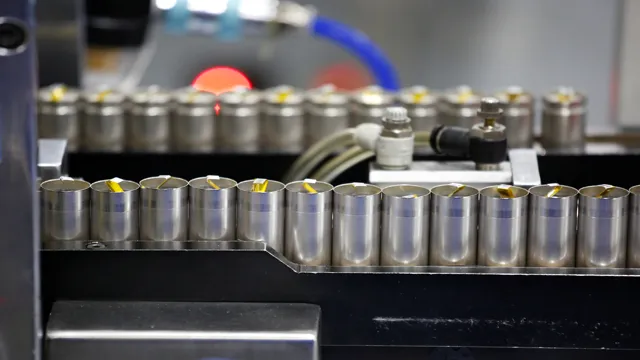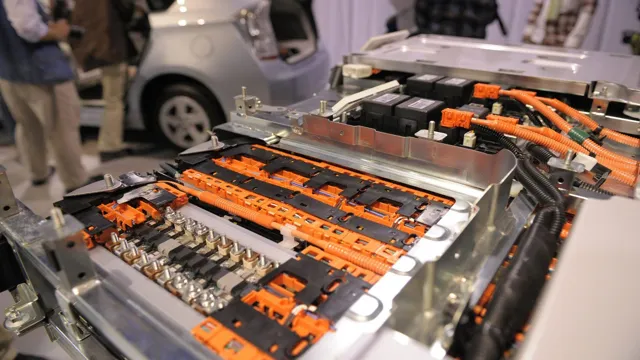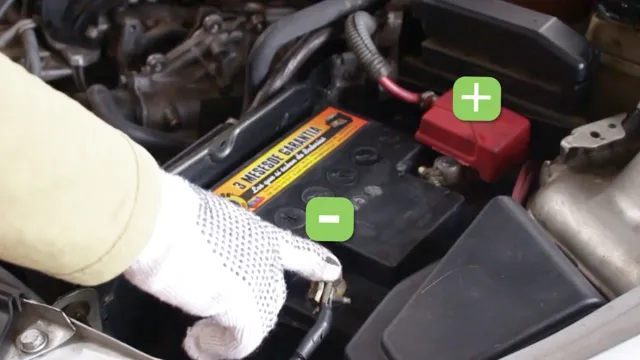The Power Behind Electric Cars: An In-Depth Look at Cobalt Used in Battery Technology
You may have heard that electric cars are the future, but have you ever wondered how they work? One crucial element of electric vehicles is their batteries, and cobalt is the vital ingredient that makes them tick. Cobalt is a chemical element that is essential in the production of lithium-ion batteries, which power most electric cars. This hard, silver-grey metal is found in the earth’s crust in small amounts, making it relatively rare and expensive.
But why is cobalt so crucial for electric car batteries? In this blog post, we’ll explore the role of cobalt in powering electric vehicles and why it’s essential to the future of sustainable transportation.
What is Cobalt?
Cobalt is an essential mineral used in electric car batteries today. It is a rare, silvery-grey metal that is found in rocks, soil, water, plants, and animals. The demand for cobalt has increased tremendously in recent years, driven by the rising demand for electric vehicles and renewable energy technologies.
Cobalt is used in the production of lithium-ion batteries, which are the most popular type of battery used in electric cars. These batteries are long-lasting, reliable, and efficient, making them ideal for powering electric vehicles. However, the mining and extraction of cobalt can be problematic, as it can lead to environmental degradation and exploitation of workers.
Therefore, finding ethical and sustainable sources of cobalt is crucial to ensuring a sustainable future for electric mobility. Despite the challenges associated with cobalt extraction, there is no doubt that this mineral is a vital component of the electric car revolution.
Cobalt’s Role in Lithium-Ion Batteries
Cobalt is a metallic element that plays a significant role in Lithium-ion batteries, which are used to power electric vehicles and other electronic devices. It is a bluish-white metal that is hard, ductile and resistant to wear and tear. Cobalt is often used in the cathode, one of the two electrodes in a lithium-ion battery, due to its high energy density and stable performance.
In fact, cobalt is one of the most expensive and crucial components of lithium-ion batteries. Its superior performance and high cost make cobalt a valuable resource, and therefore, it is important to recycle and recover it. However, there is a growing concern about its environmental and ethical impact because most of the world’s cobalt is mined in the Democratic Republic of Congo under conditions that involve child labor and human rights abuses.
Companies are increasingly investing in ethical cobalt sourcing and exploring alternative materials to reduce their dependence on this precious metal.

Cobalt Mining and Production
“Cobalt” Cobalt is a metal that is used extensively in modern-day industries, including electric vehicles and electronics. This silver-gray metal is brittle, hard, and has a magnetic quality. It is found in the earth’s crust in small amounts and is usually extracted through mining.
The Democratic Republic of Congo produces the most significant amount of cobalt globally, accounting for approximately 60% of the world’s supply. Surprisingly, cobalt mining comes with its fair share of controversies, including child labor, poor working conditions, and environmental damage, leading to global efforts to regulate the production and use of this valuable metal. Despite these issues, cobalt remains an essential element used in various applications, from batteries to magnetic alloys.
The Importance of Cobalt in EV Batteries
Cobalt is a crucial component in electric car batteries, as it helps to improve their performance and energy density. In fact, cobalt is one of the most important materials used in these batteries, as it allows them to store energy and release it quickly, making electric cars more efficient and reliable. However, despite its importance, cobalt is also a scarce and expensive mineral, and its extraction and processing can have negative environmental and social impacts, particularly in developing countries where it is often mined.
To address these issues, many companies are now exploring alternative materials and technologies that can reduce or eliminate the need for cobalt in EV batteries, while maintaining their performance and safety. While this may take time to fully realize, it is clear that finding sustainable solutions for cobalt in electric car batteries is critical to making electric vehicles a truly viable option for future transportation.
Cobalt’s Energy Density Advantage
Cobalt is an essential component of electric vehicle (EV) batteries. One of the key advantages of cobalt is its high energy density, which allows it to store a large amount of energy within a small space. This makes it a perfect fit for the compact size of EV batteries.
Moreover, cobalt helps to increase the battery’s efficiency and lifespan, making it a crucial element in the overall performance of the battery. Despite the advantages, cobalt has been the subject of scrutiny due to its mining practices, which can have adverse social and environmental impacts. However, cobalt’s energy density advantage has made it a coveted material for EV manufacturers, who are working towards finding more sustainable alternatives or minimizing the use of cobalt in their batteries.
In the coming years, we can expect to see continued efforts to improve the sustainability of EV batteries, while making sure that energy density and performance are not compromised.
Impact on EV Battery Performance
When it comes to electric vehicles (EVs), the battery is the heart of the car. And one crucial element that is responsible for the performance and safety of an EV battery is cobalt. Cobalt is an essential component in the cathode of Lithium-ion batteries, which are widely used in EVs.
It acts as a stabilizer and helps maintain the battery’s structure and lifespan. Cobalt’s presence in the battery helps improve its energy density, which translates into longer driving ranges for the vehicle. However, the excessive use of cobalt in the battery can lead to safety risks and environmental damage.
As a result, EV manufacturers are now exploring alternatives to cobalt, such as nickel and manganese, to improve the performance of their batteries while reducing the costs and environmental impacts.
How Cobalt Affects EV Battery Cost
Cobalt is an important component of electric vehicle (EV) batteries. It is used to make up the cathode in these batteries – the positive electrode that helps to store the necessary energy. Despite its name, cobalt isn’t actually a naturally abundant material, which is one reason why it has become notorious as an expensive component in EV battery production.
In fact, up to 60% of the cost of an EV battery can be associated with the cobalt it contains. However, there are alternatives available, and manufacturers have been reducing their use of cobalt in recent years. This not only helps to bring down the cost of producing EV batteries but also helps to reduce the environmental impact of the mining industry, which is often associated with ethical concerns.
By using a variety of different materials to make up an EV battery, it’s possible to produce a more sustainable, affordable, and efficient product that benefits both the consumer and the environment.
The Future of Cobalt in Electric Cars
Cobalt is a vital ingredient used in electric car batteries. However, with concerns about the shortage and ethical implications associated with mining this precious metal, researchers are racing to find a solution. Nickel and manganese, which are abundant and cheaper, are emerging as viable alternatives that could reduce dependence on cobalt in the near future.
Additionally, scientists are exploring the possibility of creating cobalt-free batteries that use lithium iron phosphate or zinc. These alternatives offer longer battery life and faster charging times, which will make electric cars more practical and efficient. Ultimately, the future of cobalt in electric cars remains uncertain, but the industry is moving towards more sustainable and ethical solutions.
As we continue to work towards a greener future, it is vital that we consider the impact of our choices on the environment and society as a whole.
Sustainable Cobalt Mining Practices
Sustainable cobalt mining practices are crucial for the future of electric cars. As cobalt is a key component in the production of lithium-ion batteries, the demand for this metal has skyrocketed in recent years. However, the mining process for cobalt has been highly criticized for its negative impact on the environment, as well as the exploitation of workers in certain regions.
To address these issues, many companies are now investing in sustainable mining practices that prioritize environmental conservation and fair labor practices. This includes using renewable energy sources in the mining process, implementing measures to prevent contamination of waterways, and ensuring that workers are properly compensated and protected. By adopting sustainable mining practices, we can ensure that the production of electric cars remains viable, while also minimizing the negative impact on people and the planet.
Alternatives to High-Cobalt Batteries
The future of cobalt in electric cars is up for debate, as concerns over its environmental and ethical impact grow. While cobalt is a vital component in high-performance lithium-ion batteries, the mining of this mineral is often associated with human rights abuses and environmental degradation. Fortunately, there are alternatives to high-cobalt batteries that could offer a more sustainable and ethical solution.
One potential alternative is the development of solid-state batteries, which use solid electrolytes instead of the liquid ones found in traditional lithium-ion batteries. These batteries have the potential to offer higher energy density, faster charging times, and improved safety features. Another possibility is the use of lithium-iron-phosphate (LFP) batteries, which have a lower energy density than high-cobalt batteries but are less expensive and have a longer lifespan.
While there are still challenges to overcome in developing these alternatives to cobalt, they offer hope for a more sustainable and ethical future for electric cars.
Conclusion: Why Cobalt is Critical for EVs
Cobalt may be a mere trace element, but its impact on the electric car industry is nothing short of electrifying. As a critical component in the batteries that power these vehicles, cobalt plays a crucial role in making our transportation more sustainable and efficient. With the rise of electric cars, cobalt demand is soaring, forcing us to explore innovative ways of sourcing, recycling, and substituting this precious metal.
So next time you charge your electric car, spare a thought for the unsung hero powering your ride – cobalt, the undisputed king of battery metals!”
FAQs
What is the role of cobalt in electric car batteries?
Cobalt is an essential component of the cathodes in electric car batteries, helping to increase their energy density and overall performance.
Why is cobalt such a vital material for electric cars?
Cobalt helps improve the stability, durability, and safety of lithium-ion batteries, which are the most commonly used battery type in electric cars.
Are there any risks associated with using cobalt in electric car batteries?
There are concerns about the environmental and social impacts of cobalt mining, as well as the potential for supply chain disruptions due to its geological concentration in politically unstable regions.
Is there research being done to develop cobalt-free electric car batteries?
Yes, several companies and research institutions are developing alternatives to cobalt, such as nickel, manganese, and aluminum, to reduce the cost and environmental impact of electric car batteries.






